Civil Liberties, Civil Rights, Climate Change, Human Rights, Surveillance
Podcast: Play in new window | Download
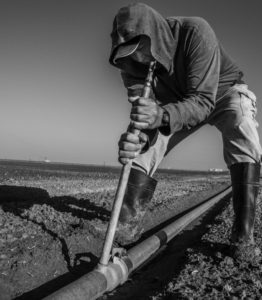

Illegal People: How Globalization Creates Migration and Criminalizes Immigrants
California has a water crisis that is rooted in racism. About 1 million Californians in 130 communities still do not have access to clean, safe drinking water. Most of these people live in rural areas primarily populated by farmworker families.
This inequality can be traced to the Great Migration of African Americans from the South to the North at the beginning of the 20th Century. Met with discriminatory real estate practices, they were forced to build or rent homes in colonias with no water mains, sewer lines or lighting.
That racist legacy continues to plague people (primarily of Mexican descent) who live in San Joaquin Valley, one of the richest agricultural areas in the world. Growers who pump large amounts of water from the soil are at the top of the chain when it comes to water access. Next come residences and businesses. At the bottom of the water access chain are the residents of the colonias.
But the people are organizing and they have achieved a victory in their decade-long struggle for equal access to water.
Photojournalist David Bacon has documented this shameful inequality and the legislation the people have secured in his article, “The Color of Water,” which was published in April by The Nation and the Economic Hardship Reporting Project.
Guest – David Bacon is an author, political activist, and former union organizer who has focused on labor issues, particularly those related to immigrant labor. He is Senior Fellow at the Oakland Institute and the author of several books and numerous articles. His most recent book is “More Than a Wall/Mas que un muro” which documents the communities on either side of the Mexico/U.S. border in photographs and journalism.
—-


Disturbing Shift Away From Passwords And Into Biometric ID Systems
Are passwords becoming obsolete? Recently our own Heidi Boghosian published an op-ed in the Los Angeles Times on the disturbing shift away from passwords to fingerprints, eye scans, and other biometrics authentication systems. A consortium of businesses is working with security experts to develop more secure ways to access online accounts. Each year the United States loses TRILLIONS of dollars from avoidable data breaches. And that figure is growing. Compromised login credentials are responsible for at least one fifth of all these breaches.
Enter the FIDO Alliance, or “Fast Identity Online.” Alliance members Google, Apple and Microsoft are working on enabling a password-free world, suggesting users switch to a simple verification of their fingerprint or face—or biometrics.
What are the benefits and risks of such a transition? Heidi is here to fill us in on some biometrics basics, and to demystify how new password-less systems might work, and when we can expect to see them.
Guest – Attorney Heidi Boghosian is executive director of the A.J. Muste Memorial Institute, a charitable organization providing support to activist organizations. Before that she was executive director of the National Lawyers Guild. Her book is coming out in July 2021(Beacon Press). She received her JD from Temple Law School where she was editor-in-chief of the Temple Political & Civil Rights Law Review. She has an MS from Boston University’s College of Communication and a BA from Brown University. Heidi is the author of the 2013 book, Spying on Democracy, and the recent book I Have Nothing to Hide”: And 20 Other Myths About Surveillance and Privacy.

——————————————–
Animal Rights, Civil Liberties, Civil Rights, Human Rights
Podcast: Play in new window | Download
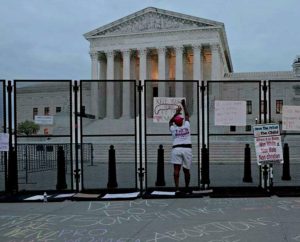

Supreme Court Justice Samuel Alito’s Leaked Draft Opinion
In 1973, the Supreme Court held in Roe v. Wade that the Constitution protects a woman’s right to abortion until the fetus becomes viable, that is, when it can survive outside the womb (which is about 23 weeks of pregnancy). Nearly 20 years later in Planned Parenthood v. Casey, the Court reaffirmed the central holding of Roe and said restrictions that placed an “undue burden” on a woman’s right to abortion were unconstitutional.
In perhaps the most significant leak in the history of the Supreme Court, Politico published a draft opinion that Samuel Alito wrote in Dobbs v. Jackson Women’s Health Organization, which would overturn Roe and Casey. At least four other members of the Court would have to sign Alito’s draft in order to overrule the constitutional right to abortion.
But Politico also reported that, in a straw poll following oral argument in December, Clarence Thomas, Neil Gorsuch, Brett Kavanaugh and Amy Coney Barrett voted to overrule Roe, Casey and the constitutional right to abortion, and they all continue to hold that position. The Court will issue its final opinion in Dobbs by the end of June.
Although two-thirds of the American people believe that Roe should not be overturned, it appears that the Supreme Court is poised to do just that. Moreover, if the Court says that abortion is not a constitutional right, many other so-called “unenumerated rights” that are not specifically mentioned in the Constitution will also be in jeopardy.
Guest – Erwin Chemerinsky, Dean of Berkeley Law School. Dean Chemerinsky is one of the nation’s preeminent constitutional scholars. He has written 14 books, including leading casebooks and treatises about constitutional law, criminal procedure, and federal jurisdiction. He also represents clients and has argued several times before the Supreme Court.
—-

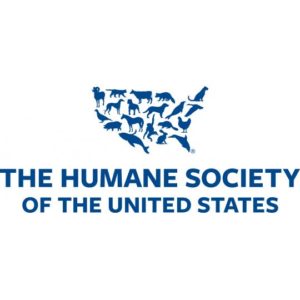
Government Agencies Delay Food Safety FOIA Requests Part 2
The US Freedom of Information Act is a 1967 federal law requiring federal agencies to disclose information to the public. The logic being: “a government of, by and for the people, is transparent and accountable to those people.” In the last half-century, FOIA requests have became critical tools for both journalists and activists seeking to illuminate federal agency activities.
However, since 2014 it’s gotten harder to wrest information from recalcitrant government agencies. Federal agencies began both heavily redacting information, or ignoring requests entirely. Delays have also been noticeably lengthier. The law gives agencies 20 business days to respond. Yet by 2019, the average wait time for a reply to your FOIA request was nearly six months (177 days).
Today’s guest experienced this frustrating process— waiting seven years for the US Fish and Wildlife service to respond. He filed his FOIA in 2014, receiving nothing for ten months, and finally a reply with much the data blacked out. This forced him to sue.
Guest – Attorney Nicholas Arrivo, managing attorney and champion of endangered species at Humane Society of the U.S.

————————
Censorship, Civil Liberties, Civil Rights
Podcast: Play in new window | Download
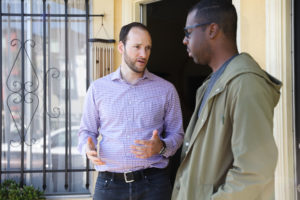
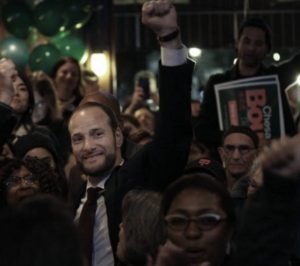
Right Wing Donors Fund Recall Of San Francisco District Attorney Chesa Boudin
Two years ago, attorney Chesa Boudin was elected by the people of San Francisco to reform the criminal justice system in their city. He was specifically chosen to begin reversing the mass incarceration which has been happening since the 1970s. This mass incarceration was a reaction by right-wing forces to the Civil Rights movement. By the time Chesa Boudin was elected, 2.3 million US citizens were behind bars across the country and another 6 million were on probation or parole. The United States has the highest per capita number of people incarcerated and under governmental supervision than any country in the world.
Chesa promised to begin to reverse this outrage. As an opponent of mass incarceration, his campaign emphasized that 75% of the people arrested in San Francisco are either addicted to drugs or mentally ill or both. He developed diversion programs. He got people into drug rehabilitation and/or psychiatric counseling. He emphasized caring not only for those arrested for crimes but especially for their victims.
He sought to and succeeded in making San Francisco a safer city. Now, after two years of Chesa’s service, crime in San Francisco has largely decreased. As Chesa promised, his office has prosecuted police for misconduct and corporate criminals for white-collar crimes.
Right-wing big money forces from outside San Francisco are attempting to recall Chesa Boudin. The vote will take place on June 7 and early voting has already begun. Rich people who don’t even live in San Francisco have played a big role in the campaign. The right-wing strategy for the recall is the use of fear: Fear of change. Fear of crime. Fear of minorities. Fear of unsheltered people living in the streets.
ChesaBoudin.com
Chesa grew up while both of his parents, David Gilbert and Kathy Boudin (who died on May 1st), were in prison serving long terms. He was raised by friends of his parents, Bill Ayers and Bernadine Dohrn, two professors who adopted him and welcomed him into their blended family. As a young boy, he would fly alone to visit his parents and go through the prison metal detector to have a few hours with them in the visiting room. Chesa is one of a number of progressive DA’s in the United States. The right understands that toppling him is critical in their effort to stop and roll back the movement for criminal justice reform.
Guest – District Attorney Chesa Boudin was sworn in as San Francisco District Attorney in January 2020. He’s a Rhodes Scholar who graduated from Yale Law School. After obtaining his law degree, he worked as a law clerk to the Honorable M. Margaret McKeown of the United States Court of Appeals for the Ninth Circuit, and later for the Honorable Charles Breyer of the United States District Court for the Northern District of California.
—-
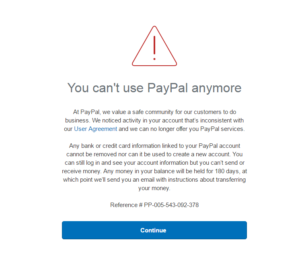

Alternative Media Under Censorship And Oppression
PayPal, YouTube, and Facebook are quashing non-main stream reporting and opinion about the war in Ukraine. Alternative media is in danger of even more extensive suppression. Archival videos of Chris Hedges’ RT show “On Contact“ were removed from YouTube after RT was banned. This included two interviews Hedges did with cohost of Law And Disorder Radio Michael Smith, another covered Law And Disorder Radio founder Michael Ratner‘s memoir. Consortium News, founded by veteran journalist Robert Parry in 1995 and currently run by Joe Lauria, was banned by PayPal in May. This was also done to Julian Assange and WikiLeaks years ago after they revealed US war crimes in Iraq and Afghanistan.
Consortium News apparently offended the big tech company, possibly with US government connivance, by being critical of US policy in Ukraine. PayPal will not reveal its reasons for the ban. Specifically, Consortium News wrote about NATO’s eastward expansion as well as the US role in the violence in the 2014 Maidan Square overthrow of the democratically elected government of Ukraine and replacing it with one more friendly to US interests.
According to Lauria, Consortium News has about 10,000 listeners a day. Sometimes this spikes to 40,000. Their PayPal account had allowed listeners to click on a support button and thus conveniently give money to the organization. PayPal recently informed Joe Lauria that Consortium News has been permanently banned. It would not discuss why.
Are we facing a dystopian future of big tech and government suppression of alternative journalism? Journalist Matt Taibbi has written that “going after cash is a big jump from simply deleting speech, with a much bigger chilling effect.” This, he added, is “especially true” for “the alternative media world, where money has been notoriously tight.”
Guest – Joe Lauria, Consortium News editor-in-chief. He is a former UN correspondent for The Wall Street Journal, Boston Globe, and numerous other newspapers, including The Montreal Gazette and The Star of Johannesburg. He was an investigative reporter for The Sunday Times of London and began his professional work as a 19-year-old stringer for The New York Times.

————————————————
Animal Rights, Civil Liberties, Civil Rights, Human Rights
Podcast: Play in new window | Download
Michael Smith Editorial On Kathy Boudin
—-


Landmark Case Roe v. Wade Analysis
In headline news, on May 3 a leaked draft Supreme Court opinion was published in Politico. Samuel Alito’s draft decision in Dobbs v. Jackson Women’s Health Organization would overrule the landmark cases of Roe v. Wade and Planned Parenthood v. Casey. Alito writes that abortion is no longer a constitutional right and he leaves it up to the states to enact and enforce laws restricting a woman’s right to choose.
Alito wrote that “Roe and Casey must be overruled,” finding no constitutional right to abortion. If four more conservative members of the Supreme Court agree — which Clarence Thomas, Neil Gorsuch, Brett Kavanaugh and Amy Coney Barrett reportedly do at the present time—all reproductive and privacy rights will be imperiled.
If the court overrules Roe, it’s expected that half the states will outlaw or severely limit abortion. Thirteen states with so-called “trigger laws” would immediately ban the procedure. Five states that have pre-Roe abortion bans could once again enforce them. And 14 states would ban abortions before fetal viability.
Prohibition of and restrictions on abortion would disproportionately affect poor women and people of color. People suffering early miscarriages or ectopic pregnancies could be adversely affected if Roe is overturned. Fertility procedures such as in-vitro fertilization, egg extractions and stem cell procedures could be outlawed. Other “unenumerated” rights not specifically mentioned in the Constitution would be jeopardized. They include the right to travel, the right to vote and the right to interracial marriage.
Guest – Attorney Marjorie Cohn – Professor emerita at Thomas Jefferson School of Law where she taught from 1991-2016, a former criminal defense attorney, and past president of the National Lawyers Guild. She lectures, writes, and provides commentary for local, regional, national and international media. On May 6, Marjorie published an article on Truthout titled: Will Demise of “Roe” Be a Death Knell for Contraception, Marriage Rights?
—-


Government Agencies Delay Food Safety FOIA Requests
The US Freedom of Information Act is a 1967 federal law requiring federal agencies to disclose information to the public. The logic being: “a government of, by and for the people, is transparent and accountable to those people.” Getting the act passed was a democratic victory of the movement in the 60s. Over the last half-century, FOIA requests became critical tools for both journalists and activists seeking to illuminate federal agency activities.
The problem is– it’s getting harder to wrest information from recalcitrant government agencies. Federal agencies began both heavily redacting information, or ignoring requests entirely. And delays got noticeably lengthier. The law gives agencies 20 business days to respond. But in 2019, the average wait time for a reply to your FOIA request was nearly six months (177 days).
This forces public safety groups to begin expensive and lengthy lawsuits to get data that’s rightfully ours. Today’s guest has experienced this frustrating process—first requesting information; then waiting years for respective agencies to respond; receiving either no reply or replies with much the data blacked out; and finally, being forced to sue.
Guest – Zach Corrigan, is a champion of food safety and senior attorney at Food and Water Watch. Back in 2018, Mr. Corrigan became concerned when Trump both removed 40% of the federal inspectors and allowed for faster slaughter lines in our nation’s hog slaughterhouses. Letting hog slaughterhouses regulate themselves makes foodborne illness nearly inevitable, because Trump’s new rules precluded adequate safety testing. COVID itself should have taught us that human health is inexorably linked to the health of all other animals and the environment. Yet even the Biden administration is pandering to the meat industry by deregulating it.

———————————–
Civil Liberties, Civil Rights, Human Rights, Violations of U.S. and International Law
Podcast: Play in new window | Download
- Roe v. Wade Editorial by Attorney Jim Lafferty
—-

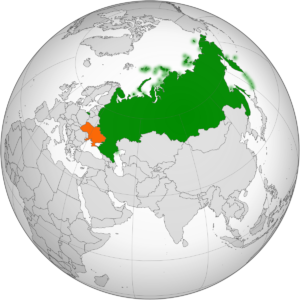
Paralysis In The US Antiwar Movement
The proxy war between the United States and Russia has been going on in Ukraine, according to some, since February. Others argue it’s been happening since 2014 with the U.S.-organized coup which overthrew the elected government of Ukraine and replaced it with a government more favorable to U.S. interests.
The corporate news media in the United States have downplayed the U.S. role in the 2014 coup, which brought fascists into a European country‘s government for the first time since World War II. At that point, the coup government launched a military action against the Russian speaking population of the eastern Donbas region which had declared its independence by a popular vote. This military action by Ukrainian forces resulted in 14,000 deaths.
It is the position of many antiwar activists in the United States that Russia initiated a war of aggression by invading Ukraine this past February. Other antiwar activists say that Russia acted in self-defense, considering what happened in 2014, the expansion of NATO and military bases up to Russia’s borders; they have refused to outright condemn the Russian invasion.
This disagreement has caused a paralysis in the U.S. peace movement. Moreover, the United States has supplied the Ukrainian government with billions of dollars worth of weapons and has demonstrated no inclination to support a cease-fire or a negotiated settlement.
Some have observed that the United States will fight the Russians to the last drop of Ukrainian blood.
The danger of a nuclear conflagration between the United States and Russia, the world’s two most heavily nuclear armed countries, increases daily. The United States has now articulated its goal in the war: to subjugate the Russians and overthrow the Putin government.
For its part, the Ukrainian government is under tremendous pressure from right-wing forces in the country (the same forces that participated with rifle fire in the 2014 coup) to refrain from engaging in peace discussions. The Ukrainian government is operating under martial law and has banned all opposition parties, including socialists and those advocating for negotiations and peace. Repression in Ukraine is being carried out by the SUB, the Ukraine political police, with advice from the CIA.
What will it take to mobilize antiwar Americans so they act together in a unified way? What demands should they raise?
Guest – Medea Benjamin is the co-founder of the women-led peace group CODEPINK and the co-founder of the human rights group Global Exchange. She serves on the CODEPINK Board of Directors and has been an advocate for social justice for more than 40 years. Described as “one of America’s most committed — and most effective — fighters for human rights” by New York Newsday, and “one of the high profile leaders of the peace movement” by the Los Angeles Times, she was one of 1,000 exemplary women from 140 countries nominated to receive the Nobel Peace Prize on behalf of the millions of women who do the essential work of peace worldwide.
—-


Free Speech And Censorship In The United States
We are taught from a very young age that one of the many blessings of living in an open and democratic nation is that we all have the right to say publicly what is on our mind; that free speech is one of the great hallmarks of our democracy. And yet, throughout our nation’s history there have been periods of time when the constitutional guaranty of free speech has been under serious assault. And this is one of those times. Less than 50% of students, as well as all other American adults, feel the right of free speech is fully secure in the United States today. And I’m afraid they are correct.
In recent years a number of public opinion surveys have disclosed that a goodly number of Americans believe people with hateful or very controversial views that might unduly excite people, or insult people, should not be allowed to express those views in the public arena. And this is true of both liberals and conservatives. At least one in four college students think it’s fine to ban highly controversial speakers from their college campus and, in fact, one in six students believe that if all else fails, they can resort to physical intervention to prevent them from speaking on campus.
Well, as the old adage about it not being legally permissible to shout “fire” in a crowded movie theater, what are the limits on free speech today? Should racist speech be allowed? How about misogynous speech? Or pro-Palestinian and anti-Israel speech? Does the fact that our nation is very divided, very tribal today, inform the answers to such questions? Well, we’ve a lot to cover today. Let’s get started.
Guest – Attorney Nadine Strossen is the New York Law School’s John Marshall ll Professor of Law, Emerita. From 1991-2008 she served as the president of the American Civil Liberties Union, the first woman to do so. When she stepped down as ACLU president in 2008, three US Supreme Court Justices participated in her farewell and tribute luncheon: Ruth Bader Ginsburg, David Souter and Antonin Scalia. Her 2018 book, is “HATE: Why We Should Resist It With Free Speech, Not Censorship,” and her earlier book, “Defending Pornography: Free Speech, Sex, and the Fight for Women’s Rights,” was named a “notable book of 1995 by the New York Times.

—————————
Civil Liberties, Climate Change, Human Rights, Truth to Power, U.S. Militarism, Violations of U.S. and International Law, War Resister
Podcast: Play in new window | Download


US Petitions The ICC For War Crimes
As the war in Ukraine continues to rage, the U.S. Senate passed a resolution that “encourages member states to petition the [International Criminal Court] or other appropriate international tribunal to take any appropriate steps to investigate war crimes and crimes against humanity committed by the Russian Armed Forces.” Yet the United States has consistently undermined the ICC. The U.S. government thinks the ICC is reliable enough to try Russians but not U.S. or Israeli officials.
Today on Law and Disorder we will examine the matter of what constitutes war crimes, whether war crimes have been committed by either side in Russia’s war in Ukraine, and the role of the International Criminal Court in adjudicating whether or not war crimes have in fact been committed.
Guest – Marjorie Cohn – Law and Disorder co-host, professor emerita at Thomas Jefferson School of Law, former president of the National Lawyers Guild, a member of the advisory board of Veterans for Peace, and the bureau of the International Association of Democratic Lawyers. She writes a regular column on Truthout and provides frequent legal and political commentary for local, national and international media. Her books include Drones and Targeted Killing: Legal, Moral and Geopolitical Issues.
—-
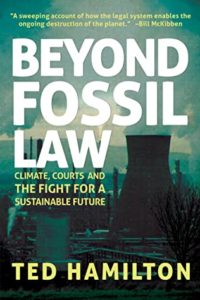
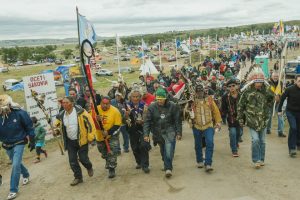
Beyond Fossil Law: Climate, Courts, and the Fight for a Sustainable Future
The technology exists to halt and reverse the ongoing catastrophe of climate change. What is lacking is the political will to do it.
It is legal in the United States to put millions of tons of poison into the air but it is illegal to disrupt this ecocide. Our courts and Congress defend this ecocide. What is to be done?
In 2016, four people known as “the valve turners“ shut down four pipelines in the states of Washington, Montana, Minnesota, and North Dakota. They were arrested and tried. How did the valve turners defend themselves? They mounted the defense of necessity.
The necessity defense is the legal concept that a person can commit a minor crime in order to prevent a larger one. In this case the valve turners admitted to trespass on oil pipeline company property in order to prevent their ongoing contribution to the crisis of climate change.
Guest – Attorney Ted Hamilton, author of the just-published book, “Beyond Fossil Law: Climate, Courts, and the Fight for a Sustainable Future.“ Bill McKibben describes Ted Hamilton book as “a sweeping account of how the legal system enables the ongoing destruction of the planet.“. Ted Hamilton is a climate movement lawyer, writer, and literary scholar. After law school, he co-founded the Climate Defense Project, which provides legal assistance to climate justice activists including the valve turners. He lives in Worcester, Massachusetts.

—————————————-























